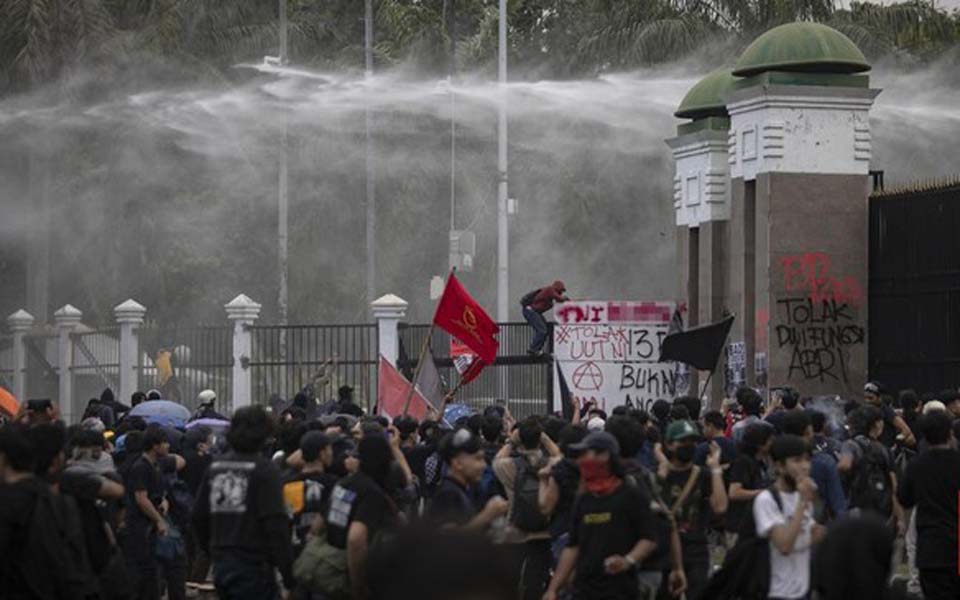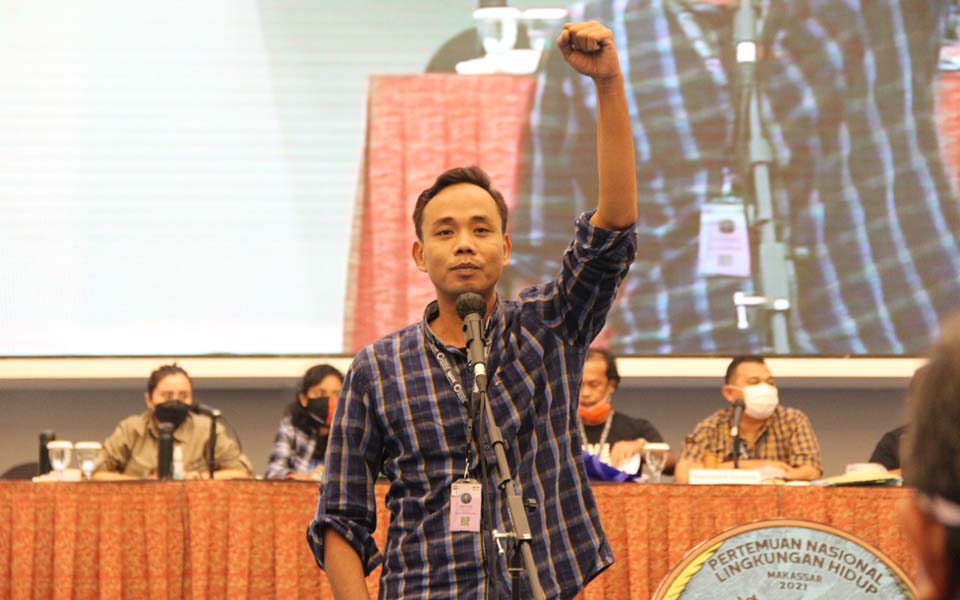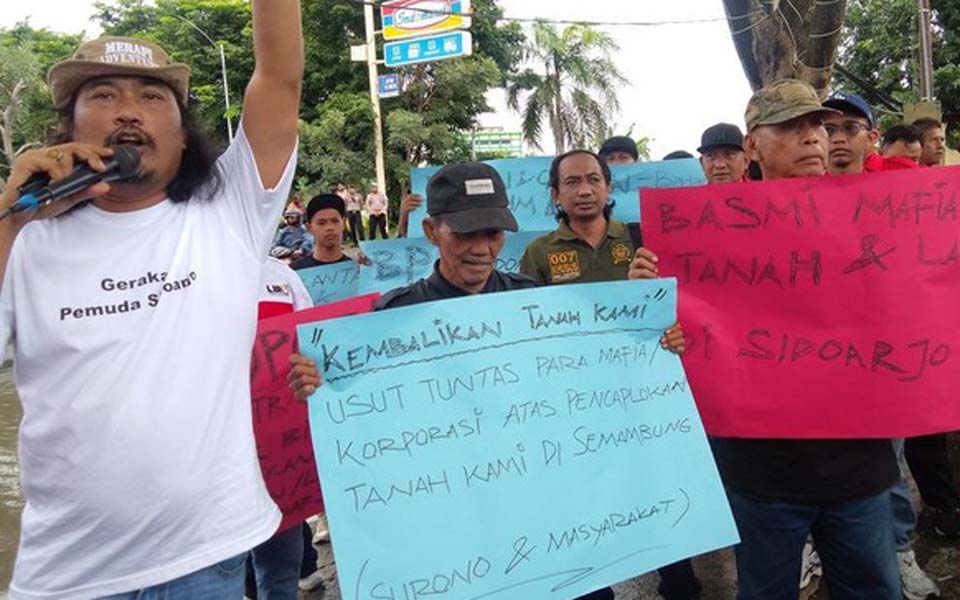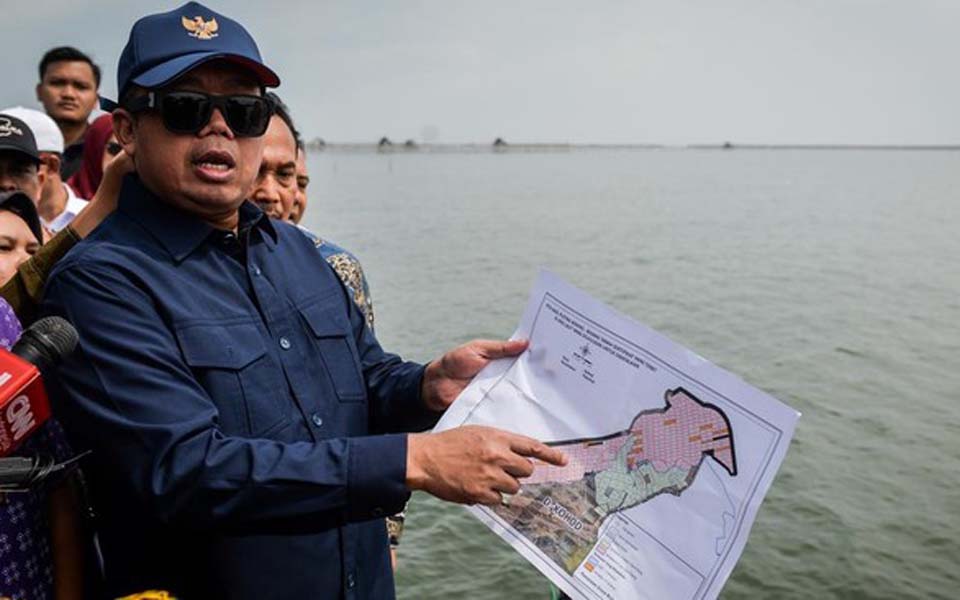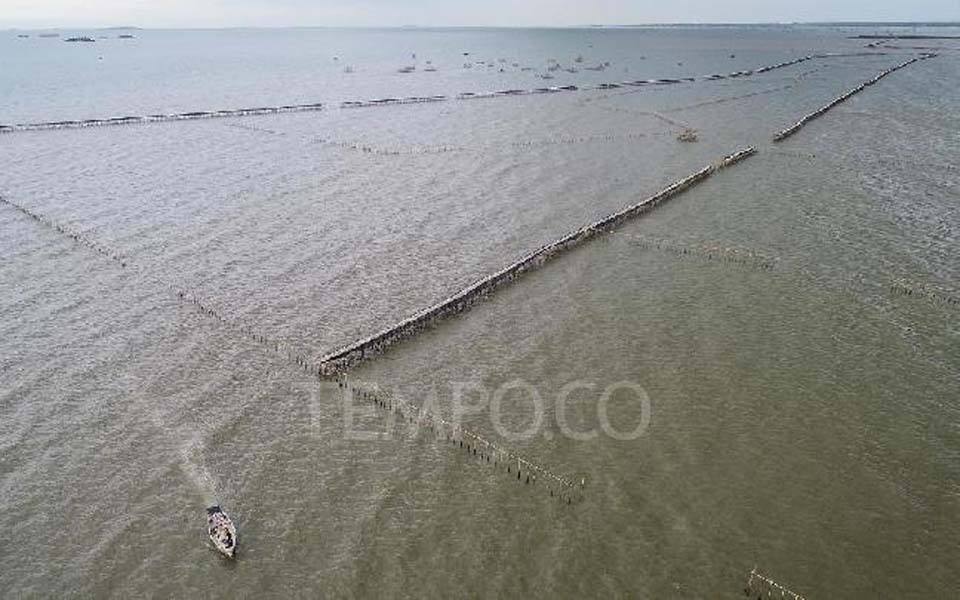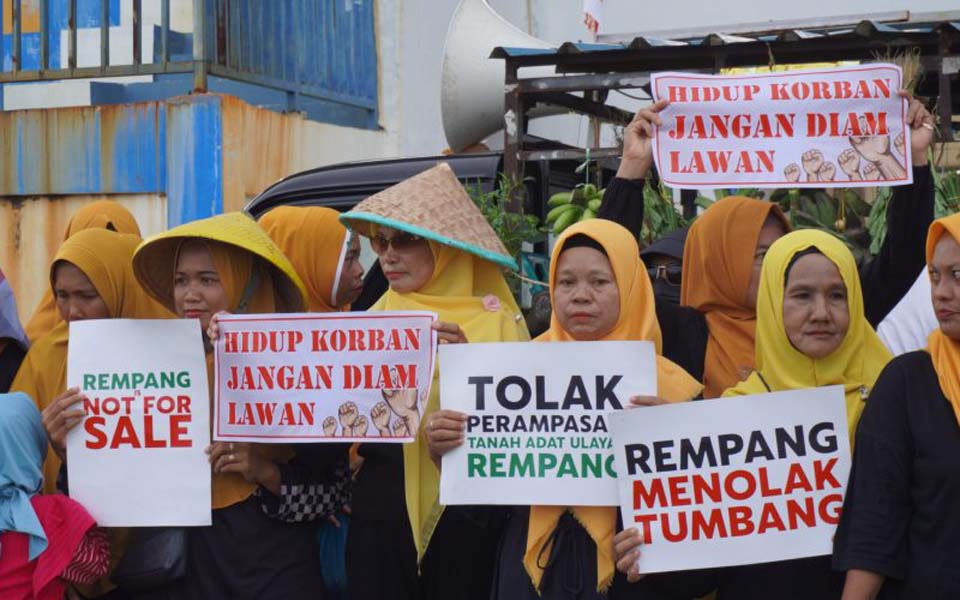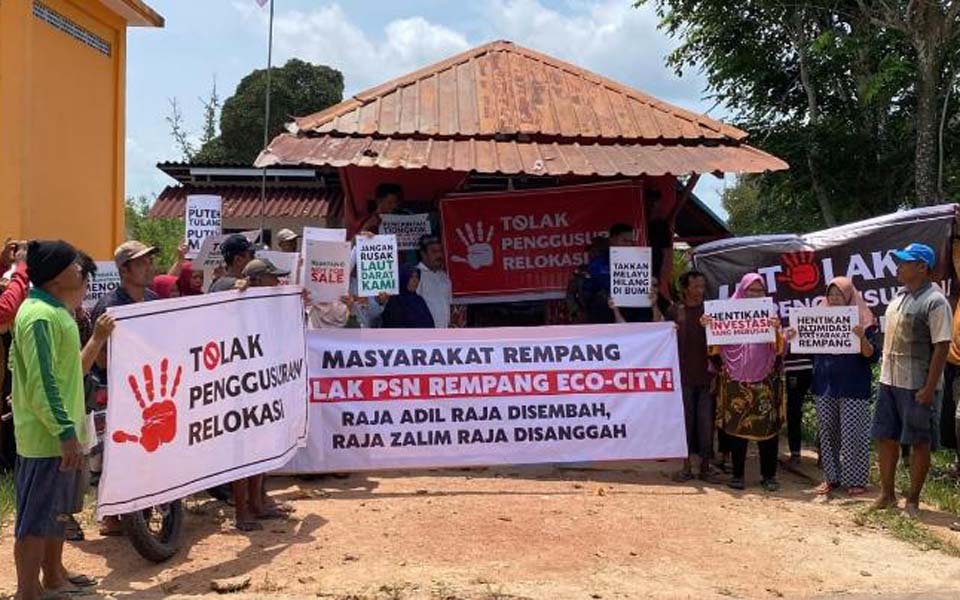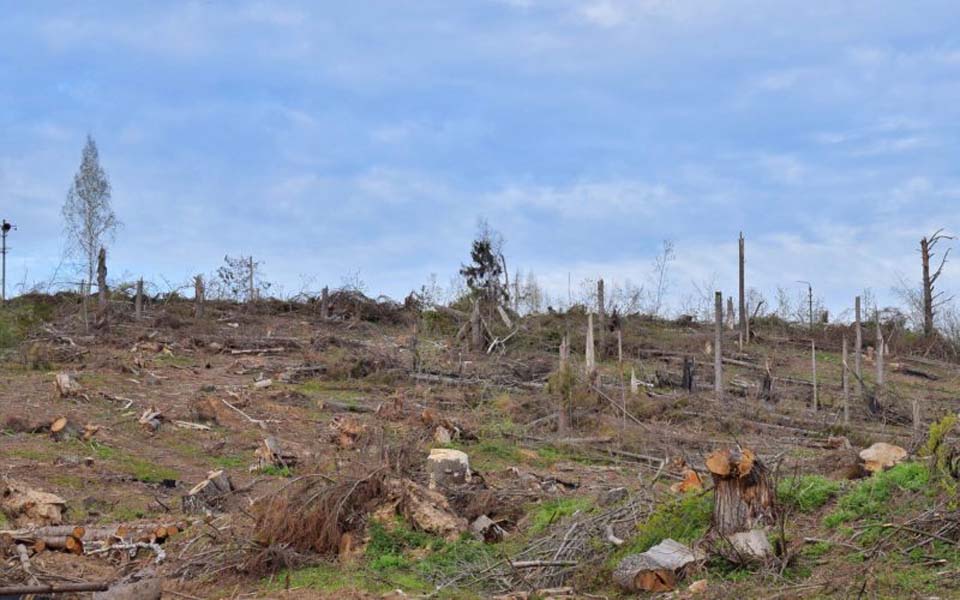Vitorio Mantalean, Jakarta – Institute for Public Research and Advocacy (Elsam) Advocacy Manager Busyrol Fuad suggests there is a paradox within the government over agrarian policies.
The statement was made in response to the arrest of 40 members of the Prosperous Earth Crusaders Farmers Association (PPPBS) in Malin Deman sub-district, Mukomuko regency, Bengkulu province.
"On the one hand the government has been very enthusiastic, even touting the achievements of the agrarian reform agenda, by for example handing out free land certificates", said Fuad at a joint press conference with a number of civil institutions on Tuesday May 17.
"[But] on the other hand, it allows the theft of local people's land, in the interests of development, in the interests of extracting natural resources", he said.
According to Fuad, the criminalisation of the 40 farmers in Bengkulu is just one example of this, and there are many other cases in other regions.
Earlier, an agrarian conflict also occurred at the Wadas village in Purworejo regency, Central Java, when the local population was intimidated and criminalised for opposing an infrastructure project.
According to the Agrarian Reform Consortium (KPA), throughout 2021 there were at least 207 agrarian conflicts reported around the country.
The majority of these conflicts occurred in the plantation sector, namely 74 cases. Broken down further, 59 cases or 80 percent of cases occurred in the palm oil plantation sector and covered some 255,006 hectares.
"What happened in Mukomuko is, the state's actions were not democratic, by using criminal law instruments in the case, which further shows that there is actually a paradox in the context of the government's agrarian reform program", said Fuad.
"If there is no serious response to this, perhaps it will occur in other places. Over the long-term, I see that there is a trend, when communities pursue efforts to demand justice and so forth, they instead come under attack as was experienced by the 40 farmers in Mukomuko", he said.
Origins of the land conflict
The conflict in Mukomuko began over the ownership of land which had initially been cultivated by farmers who had planted jengkol, rice, coffee and so forth, 1,889 hectares of which was taken over by a company called PT Bina Bumi Sejahtera (BBS) in 1995.
The company however only planted cocoa on 350 hectares. Following this the land, for which the company had a right to cultivate (HGU) status, was abandoned in 1997 or for the last 25 years.
Local people who claimed not to have received any compensation for their land took the initiative to begin planting again on the abandoned but still productive land.
In 2004, the PT BBS land which was being managed by the community was taken over by the company PT Daria Dharma Pratama (DDP) through a borrow and use certificate agreed to between PT DDP and PT BBS.
Based on this claim, PT DDP forcibly evicted the community from the land they had been working on which had been abandoned by PT BBS by planting palm oil trees, coercing them to accept compensation and repression actions.
The farmers' lawyer, from the Akar Law Office, said that the community had tried repeatedly to get the government to return control of the land to the farmers, but failed to achieve this.
Then in March 20022, the police and the Para-military Mobile Brigade (Brimob) were brought in to provide security for PT DDP to carry out its agricultural activities.
Thirteen farmers' huts were burnt down and one farmer was assaulted and arrested illegally. Then on Thursday May 12, scores of farmers planted palm oil trees on the land at the same time as the company was planting on the same land.
PT DDP public relations officer Samirana insists that the company has clear legal rights to the land.
"Not one hand-span of the land belongs to them. They're just making illegitimate clams. We released the land legally through consultation and compensation. They're just making false claims", said Samirana.
The company claims that they requested assistance from Brimob because several PT DDP security personnel had been intimidated and assaulted by the community.
[Translated by James Balowski. The original title of the article was "Elsam: Paradoks, Pemerintah Bagi-bagi Sertifikat tetapi Petani Ditangkapi Saat Konflik Agraria".]






